Common Challenges in Cold Chain Management and How to Overcome Them
In today’s fast-moving global market, keeping temperature-sensitive products safe and effective is no small task. Whether it’s fresh produce, vaccines, or chemicals, every stage from manufacturing to delivery depends on a reliable cold chain. For businesses in the UAE, this becomes even more critical. The region’s extreme heat, long transport routes, and high energy demands make cold chain management both essential and challenging.
Let’s explore the most common challenges companies face in maintaining a consistent cold chain and the practical ways to overcome them especially with the help of reliable cold chain solutions in the UAE.
1. Temperature Fluctuations During Transit
Even a slight temperature change can affect product quality. Fruits can lose freshness, frozen foods can thaw, and pharmaceuticals can become ineffective. In the UAE, where outdoor temperatures often soar, maintaining consistent cooling during long journeys is a daily challenge.
How to overcome it:
Use real-time temperature monitoring: Smart sensors and GPS trackers can detect any fluctuation and alert operators instantly.
Improve vehicle insulation: Well-insulated containers and temperature-controlled trucks reduce external heat impact.
Regular maintenance: Preventive checks on cooling units help avoid breakdowns during transport.
Modern cold chain solutions in the UAE now integrate GPS-enabled monitoring and remote data logging, allowing logistics teams to track both location and temperature simultaneously.
2. Poor Packaging and Insulation
Even the most advanced refrigeration system can’t protect products if the packaging fails. Damaged boxes, weak seals, or poor insulation allow heat to seep in and ruin product integrity.
How to overcome it:
Invest in thermal packaging: Use gel packs, dry ice, or phase-change materials to maintain ideal temperatures.
Customize packaging per product: For example, frozen seafood requires different insulation compared to fresh flowers or medical samples.
Validate packaging performance: Testing under real transport conditions ensures packaging can withstand temperature variations.
Many UAE-based companies are adopting sustainable, high-performance packaging solutions that combine efficiency with eco-friendliness.
3. Lack of Real-Time Visibility
Without visibility, businesses can’t identify where or when a temperature breach happens. This leads to wasted products and higher costs.
How to overcome it:
Adopt IoT and cloud tracking: Internet of Things (IoT) devices collect real-time data on temperature, humidity, and shipment location.
Centralize data dashboards: Unified systems help track every stage of the supply chain.
Enable instant alerts: Automated notifications allow quick responses before damage occurs.
Advanced cold chain solutions in the UAE now offer complete visibility, giving businesses control and confidence over their logistics network.
4. Regulatory and Compliance Requirements
For sectors like food and pharmaceuticals, regulations are strict. Non-compliance with temperature or handling standards can lead to product recalls or fines.
How to overcome it:
Stay updated on UAE regulations: The Emirates Authority for Standardization and Metrology (ESMA) and Dubai Municipality have clear cold chain guidelines.
Train your team regularly: Staff should understand temperature limits, handling rules, and documentation practices.
Maintain accurate records: Keep detailed temperature logs, equipment service reports, and transport documents.
Partnering with certified cold chain logistics providers in the UAE can help businesses stay compliant while maintaining operational efficiency.
5. Infrastructure and Energy Limitations
Cold storage facilities require reliable power and robust infrastructure. In regions with high energy demand or occasional outages, this can be a major concern.
How to overcome it:
Invest in power backups: Generators and solar-powered systems prevent losses during blackouts.
Upgrade to energy-efficient cooling: Smart controls and eco-friendly refrigerants help reduce energy costs.
Choose strategic warehouse locations: Position facilities near transport hubs to minimize transit time and risk.
With UAE’s ongoing investment in logistics infrastructure, many companies are now developing purpose-built cold storage facilities designed for efficiency and sustainability.
6. Human Error and Insufficient Training
Technology can only go so far human mistakes remain one of the biggest causes of cold chain failures. A misplaced sensor or improperly sealed container can ruin an entire shipment.
How to overcome it:
Conduct continuous training: Educate staff on product handling, equipment operation, and emergency procedures.
Implement clear SOPs (Standard Operating Procedures): Well-documented steps reduce confusion and inconsistency.
Promote accountability: Encourage a culture where every employee understands the importance of their role in maintaining temperature integrity.
A skilled and responsible workforce is the foundation of any successful cold chain operation.
7. Cost Pressures and Efficiency Challenges
Maintaining a reliable cold chain can be expensive. Refrigeration systems, sensors, and energy bills all add up, pushing companies to find smarter ways to operate.
How to overcome it:
Leverage data analytics: Use performance data to identify inefficiencies and optimize routes or storage times.
Outsource strategically: Partner with specialized logistics providers who already have the infrastructure in place.
Adopt scalable solutions: Flexible transport and modular storage options help control costs during demand fluctuations.
In the UAE, where competition in logistics is intense, balancing quality with cost-efficiency often defines business success.
8. Delays and Unexpected Disruptions
Even the best cold chain plan can face delays—traffic jams, customs checks, or equipment breakdowns can all cause temperature breaches.
How to overcome it:
Prepare contingency plans: Keep backup vehicles, alternative routes, and emergency storage options ready.
Use predictive analytics: Forecast disruptions and plan proactively.
Partner with experienced logistics providers: Companies offering advanced cold chain solutions in the UAE can manage delays efficiently with quick response systems.
Being proactive instead of reactive makes a huge difference in minimizing losses and maintaining product integrity.
Cold chain management is about more than just keeping products cold—it’s about preserving trust, quality, and safety across every mile. The UAE’s challenging climate demands a combination of technology, strategy, and skilled people to keep temperature-sensitive goods in perfect condition.
By investing in reliable cold chain solutions in the UAE such as real-time monitoring, validated packaging, and well-trained staff businesses can reduce risks, cut waste, and deliver products safely every time.
A resilient cold chain doesn’t happen by chance it’s built through constant improvement, smart technology, and an unwavering commitment to quality.


